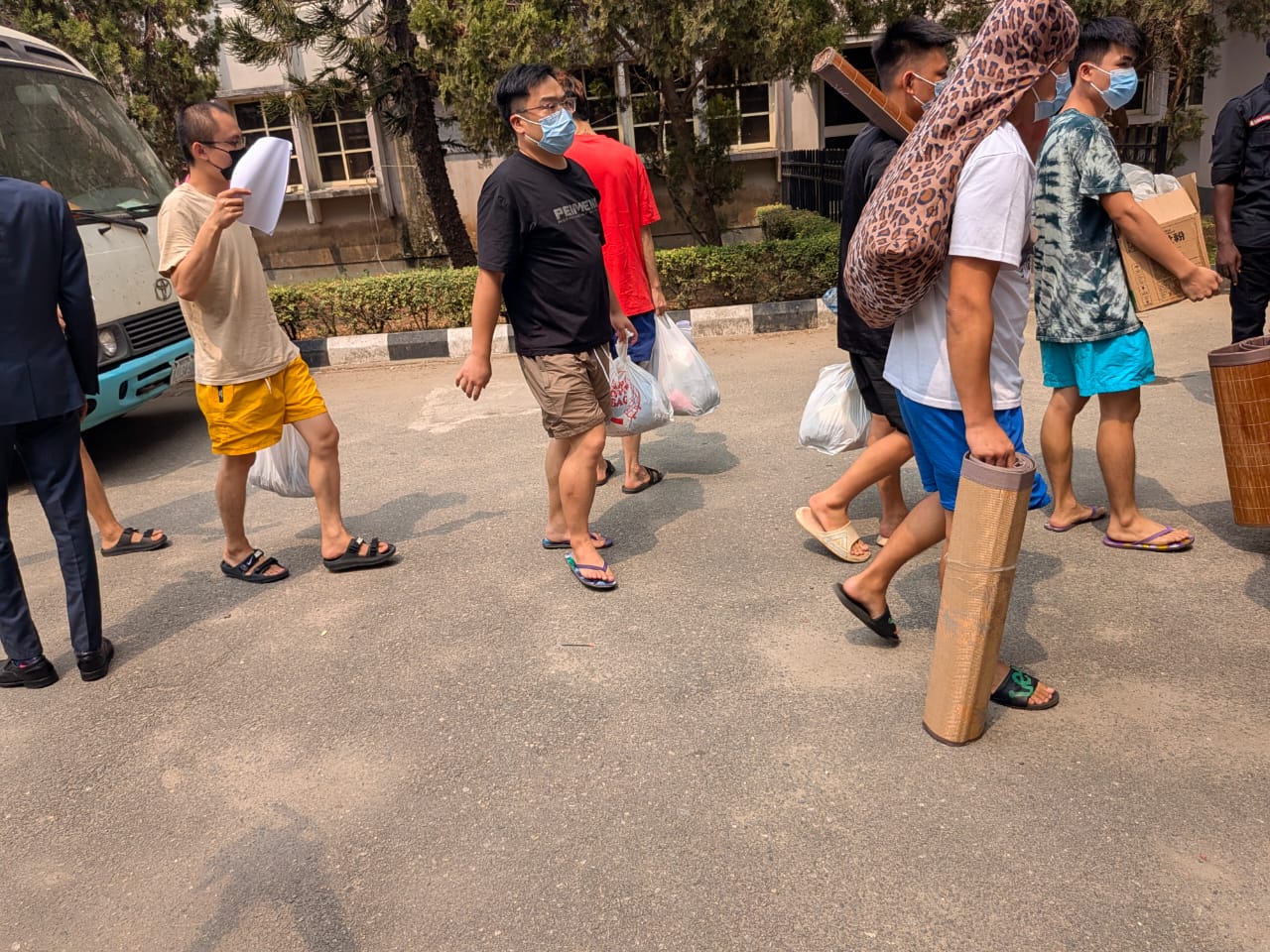
TRIAL OF CHINESE NATIONALS IN CYBERCRIME CASE DELAYED AFTER DEFENDANTS REJECT INTERPRETER
By Aishat Momoh. O.
The trial of five Chinese nationals accused of involvement in identity theft and cybercrime activities in Nigeria has been delayed after the defendants rejected the court-appointed interpreter. The case, which was set to begin on Monday at the Federal High Court in Ikoyi, Lagos, has been adjourned to March 4 and 5, 2025, to allow the defendants to select their preferred interpreter.
The accused include Zhao Ying Bin, Yuzi a.k.a Wei Xuehuan, Zhang Yang, Weng Zhi Cheng, and Genting International Co. Limited. They were arrested by the Economic and Financial Crimes Commission (EFCC) in December 2024 for allegedly hiring Nigerian youths to engage in cybercrimes, specifically identity theft, and to impersonate foreign nationals for financial gain.
As the trial was scheduled to commence, prosecution counsel Hannatu Kofanaisa informed the court of her readiness to proceed. However, defense counsel N. Abraham, a former prosecutor with the EFCC, requested an adjournment to ensure the defendants’ rights under the Administration of Criminal Justice Act, 2015. Abraham argued that the defendants should be provided with adequate resources to properly defend themselves, including the ability to choose their interpreter.
In response, Justice Ayokunle Faji agreed to adjourn the proceedings, setting new dates for the trial to begin in early March.
The EFCC has charged the defendants with multiple offences under the Cybercrimes Prohibition Act, 2015 (amended in 2024). They are accused of orchestrating cybercrimes by employing Nigerian youths to carry out identity theft, allowing the perpetrators to pose as foreign nationals to gain financial advantages. Zhao Ying Bin is also accused of making false representations, introducing himself under a false identity, “Lisi Chuan,” on his Telegram account with the intent to fraudulently procure financial instruments for his employer.
These offences, according to the EFCC, carry penalties under sections 18 and 22(3) of the Cybercrimes Prohibition Act.
READ ALSO:
BAMISE: AGAIN, ANDREW NICE’S TRIAL SUFFERS SET BACK DUE TO COUNSEL’S ABSENCE
With the trial now postponed until March, the defendants’ legal team will have time to select a preferred interpreter to facilitate the proceedings.
